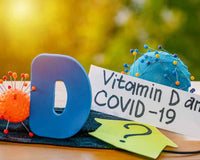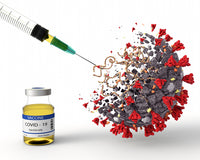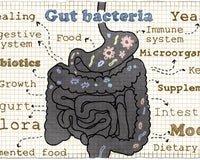Natural Sweeteners and Artificial Sweeteners are all around us and we need to be able to not only identify them but know what each one of them do to our body.
Natural sugar made from sugar cane and beets has been around since the 1700’s, and artificial sweeteners have only been around since 1957.
In order to gain a greater understanding of the difference between natural and artificial sweeteners, you need to understand how our body treats each of these different compounds.

Once you understand how the body processes these products, it will be easier to figure out how they affect your general health and wellbeing
Natural Sweeteners
Sugar is a kind of carbohydrate. Carbohydrates provide quick digesting calories that are quickly absorbed through the small intestine.
There is no caloric difference between naturally occurring sugars and those that are commercially produced.
Sugars are metabolized at 4 calories per gram, and there is no nutritional value to them.
When these dietary sugars, or glucose, are consumed, they take one of two forms either a single monosaccharide or two linked monosaccharides, otherwise known as a disaccharide.
They need to be broken down into these forms to be absorbed by the body.
Your cells then use this glucose for energy, or it is stored in the liver and muscles as glycogen.
There is some form of sugar in many of the foods we eat, both processed and natural whole foods.
Natural sugars can be found in fruit, starchy vegetables, honey, and dairy.
Many of the foods we eat have added sugars, such as cookies, soda, candy, and other sweet drinks.

It’s always very important to check the ingredients list on anything you consume.
Ingredients that end in -ose are usually a form of added sugar.
One of the troubles with sugars in general is that they can be extremely addictive.
When eaten, they actually will trigger your body to crave even more sugar, though naturally occurring sugars don’t have effects that are quite as drastic because fruits and vegetables contain fiber.
Isomalt, maltitol, sorbitol, erythritol, lactitol, mannitol, and xylitol are sugar alcohols that the food and beverage producers use as sugar substitutes.
Artificial Sweeteners
All of these sugar substitutes except for erythritol can cause a number of digestive issues because they are slow to be absorbed by the body.
If you are going to eat sugars, consume them very sparingly, and make sure if you do that you stick to only natural sugars.
Sadly, in our culture the use of artificial sweeteners is increasing all the time.
Some of the most common artificial sweeteners are acesulfame, saccharin, aspartame, and sucralose, which actually can make you crave sugar even more because our bodies sense them as sweeter than table sugar.
These artificial sweeteners are actually listed as food additives.
The Center for Science and Public Interest states that not only do artificial sweeteners have no nutritional value, but they potentially have toxic byproducts, and can increase your cravings for sweets.

The recommendation is to avoid artificial sweeteners entirely.
The American Heart Association estimates that Americans eat on average over seventy grams of sugar daily, which comes out to over three hundred empty and non nutritive calories every day.
Because of this increase in consumption, the recommendations for sugar intake have been limited to no more than twenty-five grams of added sugars daily for women, and no more than thirty-seven and a half grams for men.
When you are looking to make healthy eating patterns as far as consuming sugars goes, there are certain guidelines you can follow.
To start off, it’s important to reduce the amount of sugared beverages that you drink, and to choose drinks that are low in added sugars.
It’s also a good idea to pick beverages that don’t have any added sugars at all.
Limiting the amount of sweet snacks, and grain and dairy based desserts is another great step, as is only picking unsweetened canned fruits and sauces, as well.
Another place where you will need to watch out for added sugars is in your favorite tomato sauces.
Watching the labels on all of the products you buy is the best way to make sure you are cutting out added sugars and useless calories.
In order to limit your sugar intake, make sure to check the product labels for added sugars in the ingredients section.
On all nutritional labels, the ingredients are listed according to how much there is in the product, with the one with the greatest amount listed first.

It’s also a good idea to pick foods like dairy, fruits, and starchy vegetables that have natural sugars in them, and drink water instead of sodas and juices.
When you’re craving dessert, try to pick fresh fruit, and when you are out to eat, ask for the nutritional information so you can pick a meal with a low sugar content.
Natural vs. Artificial Sweeteners Conclusion
It is extremely vital to know and understand the difference between artificial and natural sweeteners, especially since they are understood to have an effect on the health of your body and may play a role in a number of chronic health problems.
When you take a lifestyle driven approach to your diet and use tools such as dietary intervention and behavior modification techniques, you can lower the negative effects that natural and artificial sweeteners and sugars can have on your body to make sure you can achieve the health eating patterns that you want for yourself and your life.
When you are armed with the correct information about your diet, your goals can become within reach much more easily.







